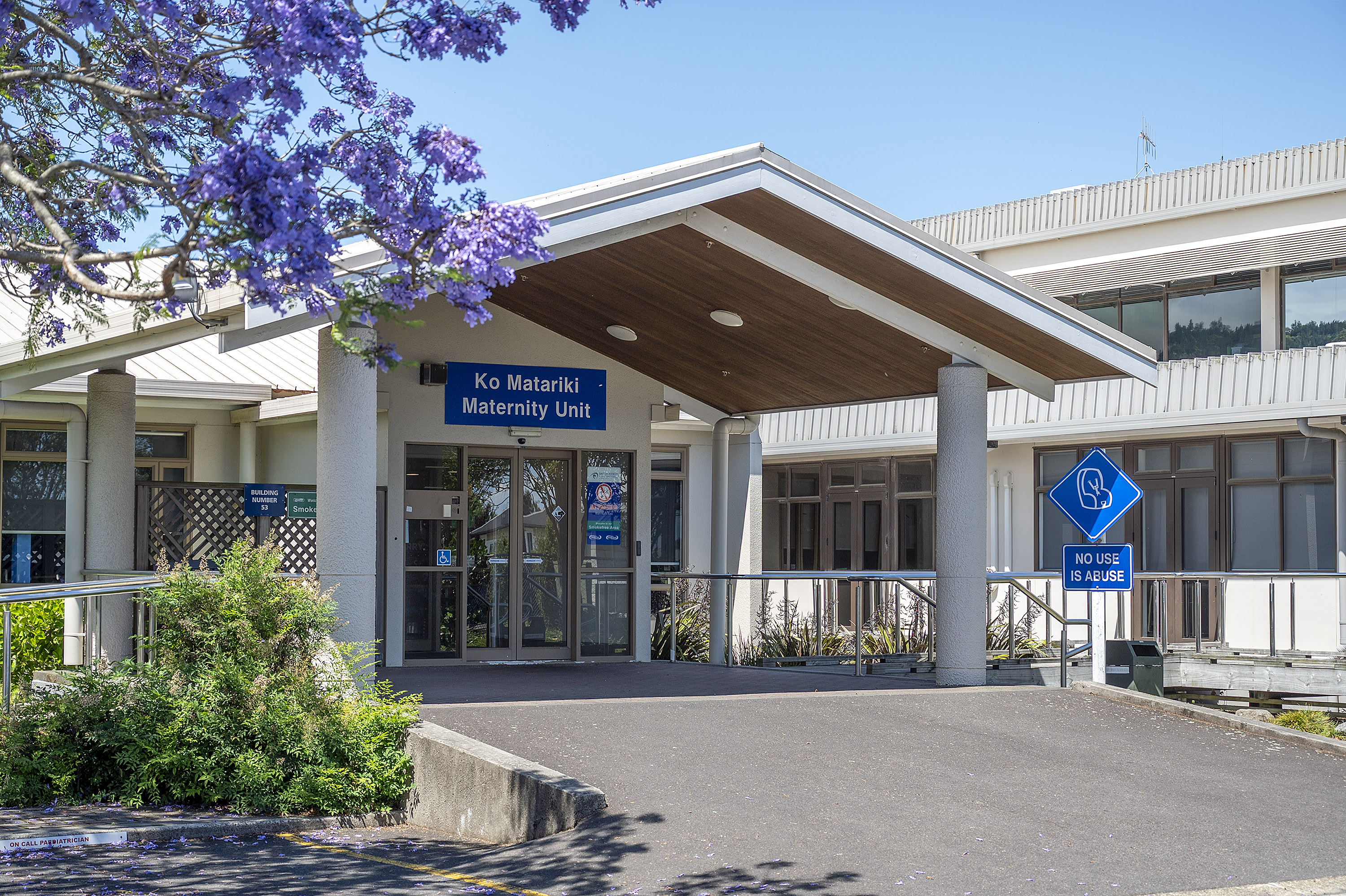Obstetrics downgrade shocks community

Kathy Forsyth
A move to downgrade Whakatāne Hospital’s Gynaecology and Obstetrics Department from January has sparked outrage in the community.
The change will leave pregnant women in the region facing significant challenges as the department will no longer offer full obstetric services.
Health NZ Te Whatu Ora yesterday confirmed obstetrics and gynaecology services at the hospital would be changing to a primary birthing service from mid-January.
Pauline McGrath, group director of operations, Bay of Plenty Hauora a Toi, said the change was temporary and necessary to ensure the safe care of pregnant mothers and babies as they faced challenges recruiting specialists.
Four of the department’s five obstetricians have resigned in the past year. One obstetrician remains, but they too may be asked to leave in January.
Expectant mothers requiring caesareans, emergency procedures, or specialist care will need to travel for treatment from mid-January.
“This means that people with low-risk pregnancies can birth at Whakatāne Hospital under midwife care, however, people who have increased risk of needing intervention during birth will need to birth at Tauranga Hospital,” Ms McGrath said.
“Outpatient antenatal care will continue at Whakatāne Hospital with the support of Tauranga specialists.
“We are committed to returning to providing secondary maternity services as soon as it is safe to do so for women and babies.”
Medical sources, speaking anonymously out of concern for their jobs, suggest that Whakatāne Hospital has been deemed a low priority by health officials.
They said staff were told at a meeting that Health NZ has been unable to find enough obstetricians to cover the department.
A medical professional described the situation as dire.
“They are saying for the next 12 to 18 months there won’t be any obstetrics cover,” the source said.
“What this means is that for anybody who has either complications arising or a booked caesarian or booked induction of labour, they will have to have their baby in Tauranga.”
The downgrade will affect not only Whakatāne but also Ōpōtiki and rural communities, which rely on Whakatāne Hospital for maternity services. For these communities, the change will mean longer travel times and delays in critical care.
Retired paediatrician Dr Chris Moyes, ONZM, who worked at Whakatāne Hospital for 43 years, is shocked at the announcement.
“I was appalled to hear from colleagues, who are still working and feel unable to speak publicly, that they have been informed that the obstetric service will be downgraded to a birthing centre only for the next twelve months.
“I realise that there was going to be a temporary problem due to the departure of the current obstetric specialists, but would expect that to be filled as quickly as possible, if necessary using short-term locums while awaiting more permanent appointments,” Dr Moyes said.
A source close to the obstetrics department said there was a reluctance to use locums even though they are readily available.
“The loss of obstetricians seems to have been deliberate and planned. They want to cut costs and reduce service making Whakatāne a ‘cottage’ hospital,” they said.
“We will only be able to look after women who would be ‘normal’ enough to birth at home. All other women would have to go to Tauranga. This is going to be life threatening for some women.”
Sources said the hospital had about 650 births a year, with 40 percent or more high risk.
“That’s a lot of extra work for Tauranga.”
Ms McGrath acknowledged the change would result in increased workload for the maternity services at Tauranga Hospital, and said they would work closely with Hato Hone St John to ensure that hospital transfers are prioritised for hapu whānau as and when required.
“We recognise the significant impact this will have on whānau in the Eastern Bay of Plenty, obstetricians and midwives both in a hospital and community setting.”
Dana Kirkpatrick, MP for the East Coast, said it was extremely concerning for the people of the Eastern Bay that there would be no urgent care if something goes wrong for an expectant mother.
“I have asked for answers as soon as possible and to ensure that “actively recruiting” means just that,” Ms Kirkpatrick said.
“Regions like ours have often found themselves at the wrong end of health decisions and we need to rally loudly so Health NZ is clear that it is not good enough to leave Whakatāne hospital and the mothers and whanau clambering for urgent care.”
She said the matter would be a priority for her.